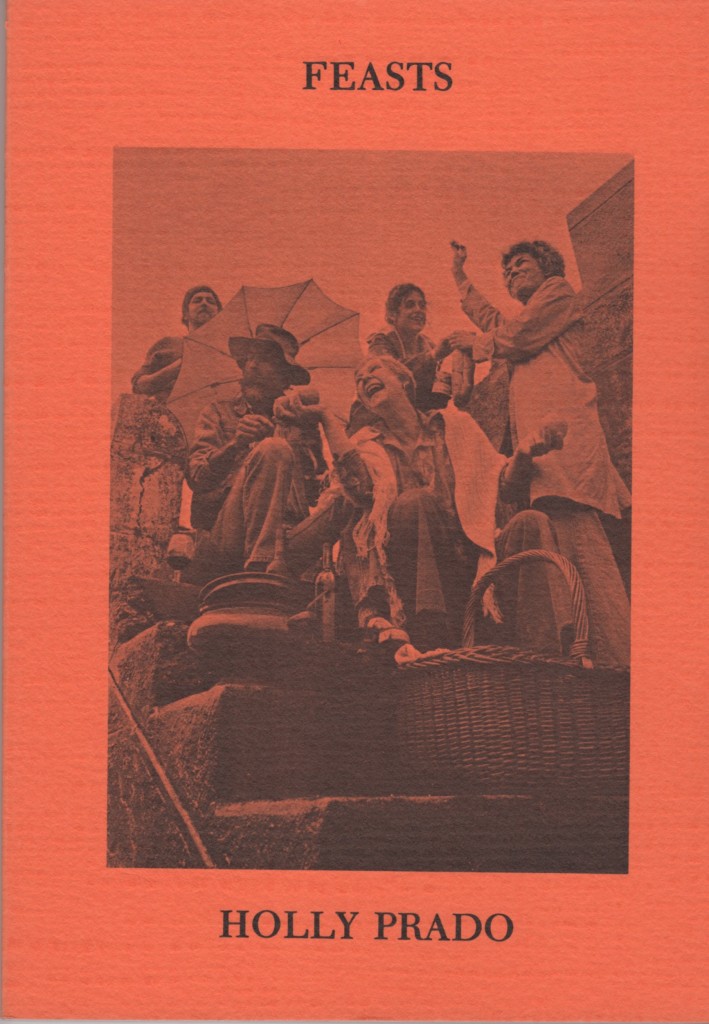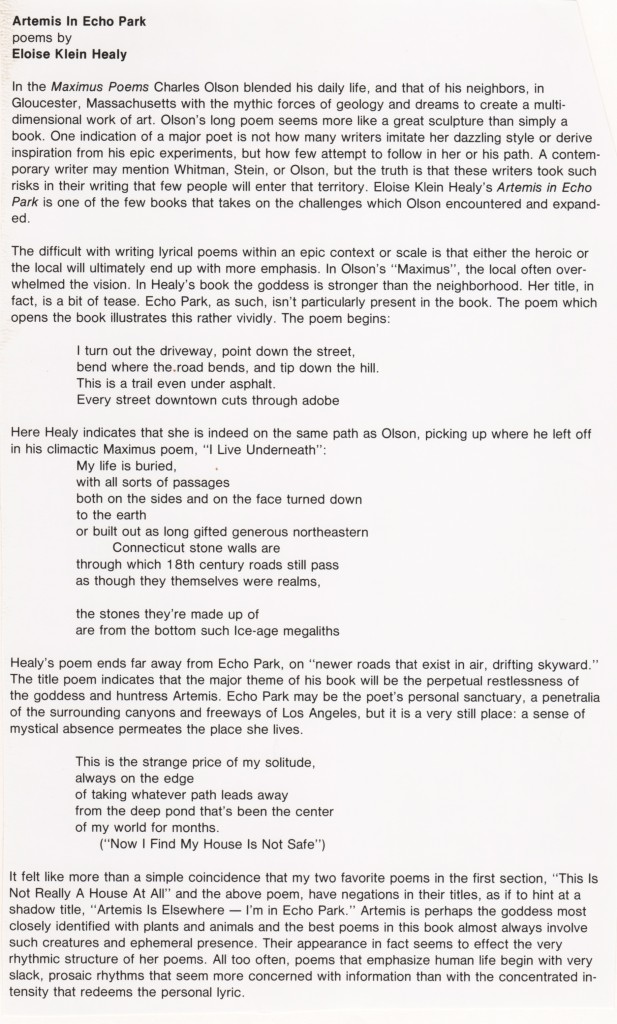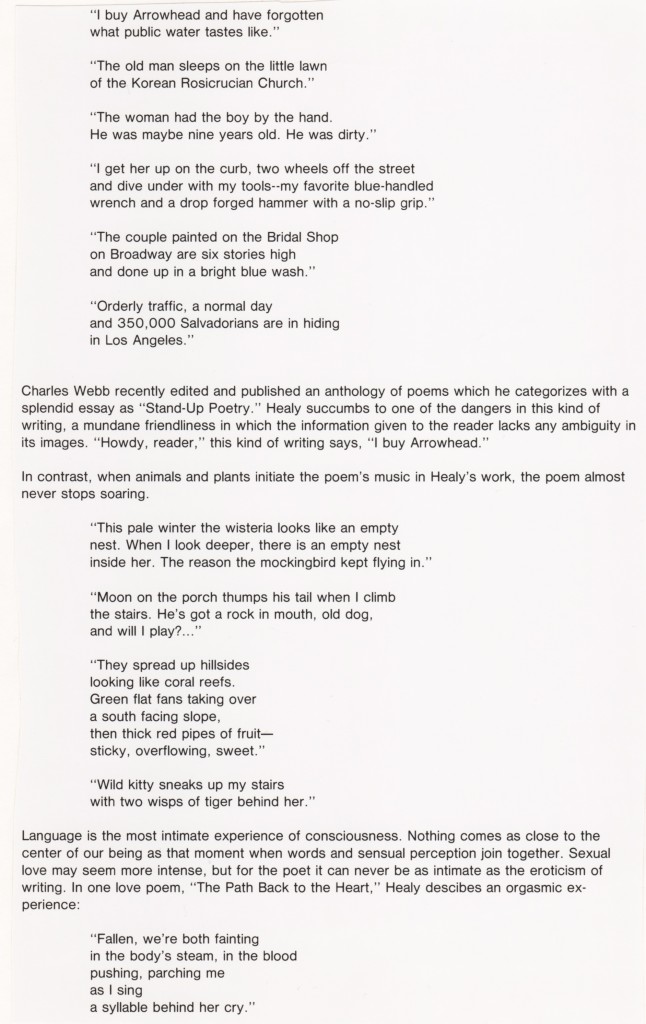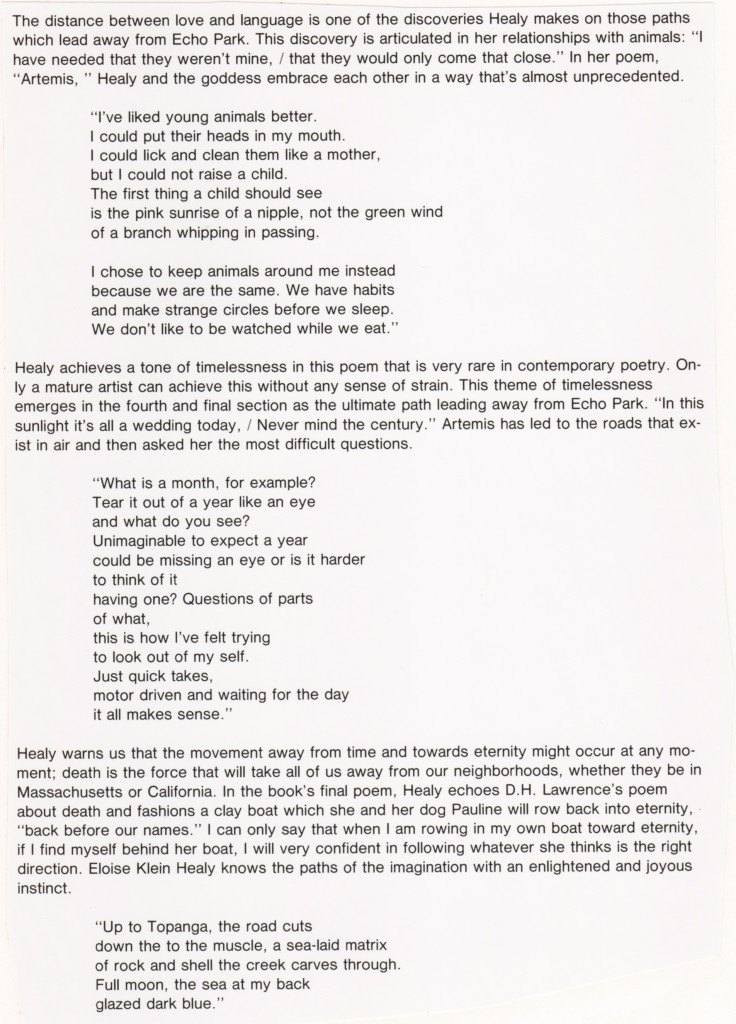Tuesday, March 29, 2016
“to turn our gold into ordinary ground / the best possible solution”

One of the most tantalizing books I published when I was the literary editor, production manager, and distribution agent for Momentum Press back in the 1970s and 1980s was Holly Prado’s Feasts, which I published in 1976. It’s hard to believe that Feasts is forty years old. Even after all this time, however, it still remains a difficult book to classify. A prose poem novella? Autobiographical fiction? A feminist text that serves as an early example of the use of journal writing as a source of creative self-definition?
I believe that the book is one of the classic pieces of writing in American literature. Although the book is not in print, I have taught it in several graduate seminars at CSU Long Beach; one student summed up many reactions: “Where has this book been all my life?” One answer I give to that question is, “Looking for another publisher.”
FEASTS sold well in the two years after it was published, even though it did not receive many reviews. One of them, however, was in the Los Angeles Times, and I excerpt from it to give you some sense of the book’s impact at the time:
“An experimental novel about a twice-divorced, 36-year-old writer named Clare and her lovers and friends. What’s interesting here is that Prado is truly experimenting…. She splices together a life from fragments of scenes, sentences, dreams, memories … a vivid sense of Clare’s life…. Stylistically the book is worth examining because Prado breathes energy into the flat, half-truth of fiction by writing poetry. (She ) arranges words in breath patterns rather than in sentences … Prado uses the period, the comma, the strophe and antistrophe with a musical exactitude we’ve not heard for a long time.”
I suppose it is a bit of a fantasy to expect a book that has not been in print for over 30 years to appear in an annotated edition, and yet that is what this book needs and deserves. Without at least some commentary accompanying a reprint, a new generation of readers would probably not realize how important it is to go on-line and look up the Woman’s Building, the cultural center in Los Angeles that plays a major role in Feasts. Those who read this book without any awareness of the roman a clef quality of its social context will miss much of the ambience that it has to offer.
I would like to go on record as having made efforts to get Feasts reprinted. Specifically, I have twice approached the Feminist Press in New York City, and each time have failed to receive even the courtesy of a form rejection. The first time they claimed that they never received the copy of the book I sent for their consideration, but the second time I handed a photocopy of the book to the editor along with a return envelope. No response.
Perhaps there is some new feminist press out there that would be willing to undertake this project and include a long introduction and afterword. It is with this hope that I light a cake with 40 candles to celebrate my good fortune in having been its first publisher. I refuse to believe that such a marvelously intimate, tender and lyric piece of feminist affirmation will not be for sale again at Skylight Books.
The AWP will have a major bookfair as part of its annual convention, which opens at the Convention Center in Los Angeles starting tomorrow. In general, the book publishers that are part of the AWP trade show are far more conservative than they imagine themselves to be. The sad truth is that I am not expecting any publisher at that bookfair actually leaving town in anticipation of reading FEASTS and seriously considering taking it on as a reprint project. Nevertheless, I post this notice in the hope that someone still cares about keeping avant-garde feminist writing available to the generation that might well elect the first female president or the first openly Socialist president of the United States.



 About Bill Mohr
About Bill Mohr